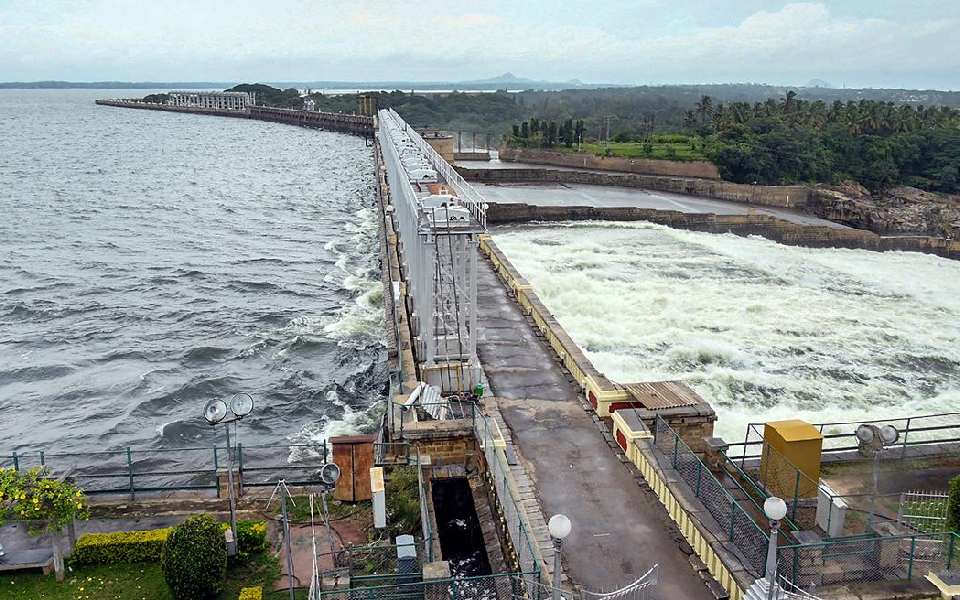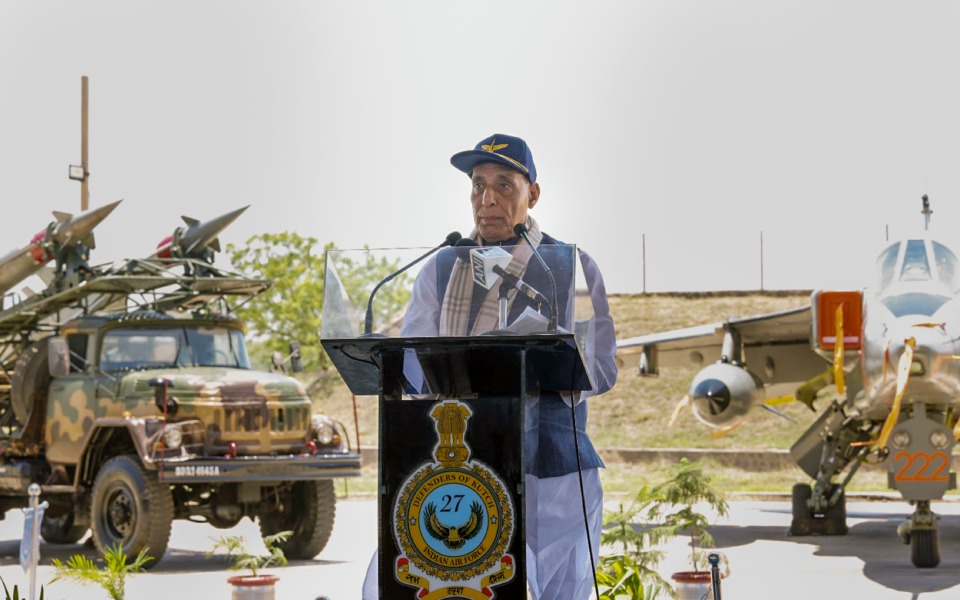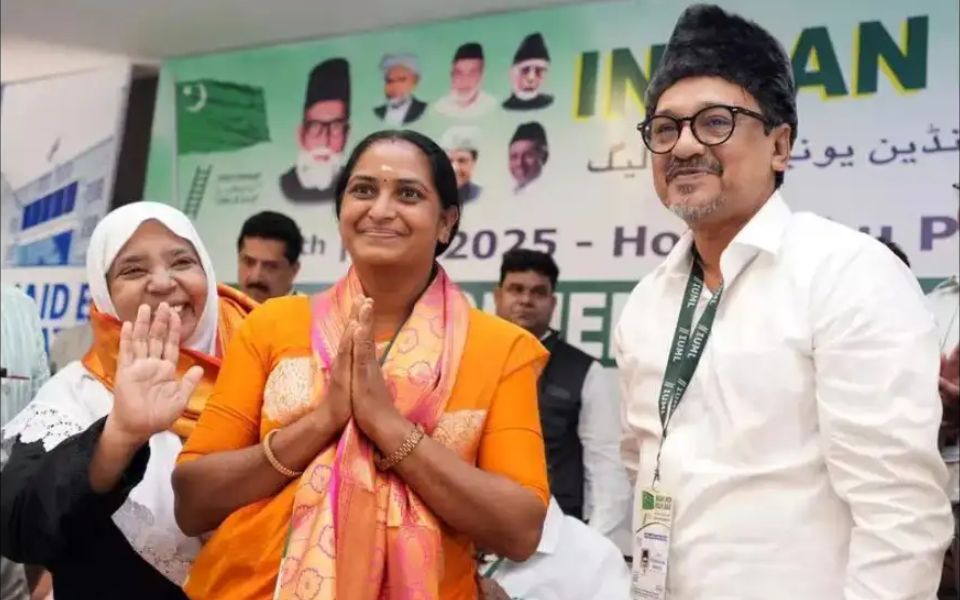Cauvery is not just a river for us—she is a lifeline, an emotion, and a symbol of devotion. From the Brahmagiri hills of Kodagu, where she was born, to the bustling city of Bengaluru, Mother Cauvery has always nourished our land and people. Today, as the Cauvery Stage V Project has come to fruition, we find ourselves at a critical moment of transformation—turning the challenges of the past into a promising future for all of Bengaluru.
The rapid growth of Bengaluru has brought many challenges concerning water supply with it. With the city's lakes shrinking and overdependence on borewells, groundwater depletion has become a significant issue. The Cauvery Stage V Project, implemented with assistance from the Japan International Cooperation Agency (JICA), is a bold and ambitious initiative aimed at revamping the city’s water supply infrastructure. This project, with a sanctioned cost of ₹4336 crore, will augment Bengaluru's water supply by an additional 775 MLD (million liters per day), benefiting over 50 lakh residents across the newly added 110 villages in the BBMP (Bruhat Bengaluru Mahanagara Palike) area. With this project alone, we are increasing the city’s total water supply capacity by more than 50%—a feat that makes it one of the largest water supply augmentation projects in India.
To put it into perspective, the existing water supply for Bengaluru was 1,450 MLD, which was implemented in four previous stages over several decades. However, in a single stage—Stage V—we are augmenting the supply by 775 MLD, which equals more than half of the existing capacity. This means more than 4 lakh households in the 110 newly added villages will receive Cauvery water, and over 50 lakh people will benefit from a reliable supply.
Our vision is one of inclusivity, ensuring that no part of Bengaluru is left behind. In Yeshwanthpura, 13 villages will receive 110 MLD of water, providing 48,000 new water connections. Dasarahalli will receive 70 MLD for 6 villages, benefiting 37,500 households. Byatarayanapura will receive 170 MLD, reaching 26 villages with 73,500 new connections. Bangalore South will be supplied with 215 MLD, covering 32 villages and providing 96,750 connections, while Mahadevapura will receive 210 MLD for 33 villages, ensuring 93,100 connections, along with this Rajarajeshwari Nagar and Bommanahalli are to benefit. This transformation, backed by careful planning and execution, represents true progress for the people of Bengaluru, with water reaching even the most underserved areas.
Our focus has not only been on increasing water supply but also on ensuring efficiency and sustainability. The state-of-the-art water treatment facility at TK Halli uses Pulsator technology—a cutting-edge method that cleans water more efficiently by quickly removing impurities with minimal waste. This makes it one of the largest and most efficient facilities in India, processing 775 million liters of water every day while keeping wastage below 1%, ensuring that almost every drop is utilised.
Supporting this facility are three-stage booster pumping stations at TK Halli, Harohalli, and Tataguni, which work together to push water through a massive steel pipeline that's 3 meters wide—about the width of a two-lane road—and stretches over 70 kilometers (approximately the distance from Bengaluru to Kolar). This pipeline not only covers a great distance but also lifts the water up by 450 meters in elevation, equivalent to climbing a hill taller than the Eiffel Tower. This remarkable engineering feat ensures that water reaches even the highest points of our city.
The sheer scale of this project—utilising 145,000 metric tons of steel plates and requiring over 24 million man-hours, which is like having 12,000 people working full-time for an entire year—is a testament to what we can achieve when we put our minds to it. All in all, we can proudly call it an Engineering Marvel!
It is said, "ದೇವರು ವರವನ್ನೂ ಕೊಡುವುದಿಲ್ಲ, ಶಾಪವನ್ನೂ ಕೊಡುವುದಿಲ್ಲ—ಅವಕಾಶಗಳನ್ನು ಮಾತ್ರ ಕೊಡುತ್ತಾರೆ" (God neither blesses nor curses - He only provides opportunities). This project represents the opportunity we seized to ensure the city’s long-term water security. Today, with the completion of Cauvery Stage V, Bengaluru is a water-sufficient city. But our work does not end here—our vision is to make Bengaluru a water-surplus city by 2026.
Prime Minister Narendra Modi once mocked Bengaluru as a "tanker city". Our response to such remarks has always been clear: “ಟೀಕೆಗಳು ಸಾಯುತ್ತವೆ, ಆದರೆ ಕೆಲಸ ಉಳಿದಿದೆ” (Criticism fades away, but the work endures). This transformation of Bengaluru’s water infrastructure stands as a powerful testament to the unyielding spirit of Kannadigas—a spirit that does not bend under criticism but rises to meet every challenge head-on.
Mother Cauvery is not just bringing water; she is bringing hope, progress, and prosperity to every household in Bengaluru. It is our privilege to ensure that her blessings flow through our taps, sustaining and nurturing our people. Let us welcome Cauvery to our homes on the 16th of October and continue on our journey towards building a prosperous, sustainable, and resilient Bengaluru—a city worthy of her grace and benevolence.
(The writer is KPCC president, Deputy Chief Minister, Minister for Water Resources, Bengaluru Development Minister, Government of Karnataka)
Let the Truth be known. If you read VB and like VB, please be a VB Supporter and Help us deliver the Truth to one and all.
Mumbai, May 16 (PTI): Benchmark stock indices Sensex and Nifty ended lower on Friday due to profit-taking in IT shares and Bharti Airtel after a sharp rally in the previous session.
The 30-share BSE Sensex declined 200.15 points or 0.24 per cent to settle at 82,330.59. During the day, it lost 383.79 points or 0.46 per cent to 82,146.95.
The NSE Nifty dropped 42.30 points or 0.17 per cent to 25,019.80.

Bharti Airtel dropped by 2.81 per cent after Singtel sold about 1.2 per cent of its direct stake in the firm for around USD 1.5 billion in sync with its active capital management approach to optimise its asset portfolio and drive shareholder returns sustainably.
HCL Tech, State Bank of India, Infosys, Tech Mahindra, Tata Consultancy Services, Bajaj Finserv, Larsen & Toubro, Mahindra & Mahindra and Titan were also among the losers in the Sensex pack.
Eternal, Hindustan Unilever, Asian Paints, ITC, Tata Motors and NTPC were among the gainers.
"Markets languished in negative territory throughout the trading session and ended weak due to selective profit-taking in IT, banking and metal shares.
"However, broader indices like mid and smallcap indices coupled with most sectoral stocks ending in positive territory shows that investors are cautiously optimistic on equities, despite global uncertainties," Prashanth Tapse, Senior VP (Research), Mehta Equities Ltd, said.
The BSE smallcap gauge jumped 1.18 per cent and midcap index climbed 0.85 per cent.
Among sectoral indices, industrials surged the most by 1.80 per cent, followed by realty (1.72 per cent), capital goods (1.63 per cent), utilities (1.44 per cent), power (1.37 per cent) and consumer discretionary (0.87 per cent).
IT, teck, BSE Focused IT, metal and bankex were the laggards.
On the weekly front, the BSE benchmark gauge jumped 2,876.12 points or 3.61 per cent, and the Nifty surged 1,011.8 points or 4.21 per cent.
"Markets traded lacklustre after Thursday’s surge and ended marginally lower, in the absence of any fresh triggers. The tone remained subdued from the outset, with consolidation in heavyweight stocks across sectors capping the move throughout the session," Ajit Mishra - SVP, Research, Religare Broking Ltd, said.
Vinod Nair, Head of Research, Geojit Investments Ltd stated that investor sentiment remained upbeat, with sustained momentum in mid- and small-cap stocks, as well as rate-sensitive sectors such as real estate, NBFCs, automobiles, and consumer durables.
In Asian markets, Japan's Nikkei 225 index, Shanghai's SSE Composite index and Hong Kong's Hang Seng settled lower while South Korea's Kospi ended in the positive territory.
European markets were trading with gains. US markets ended mostly higher on Thursday.
Global oil benchmark Brent crude went up 0.09 per cent to USD 64.59 a barrel.
Foreign Institutional Investors (FIIs) bought equities worth Rs 5,392.94 crore on Thursday, according to exchange data.
Sensex jumped 1,200.18 points or 1.48 per cent to settle at a seven-month high of 82,530.74 on Thursday. The Nifty surged 395.20 points or 1.60 per cent to reach a seven-month peak of 25,062.10.







